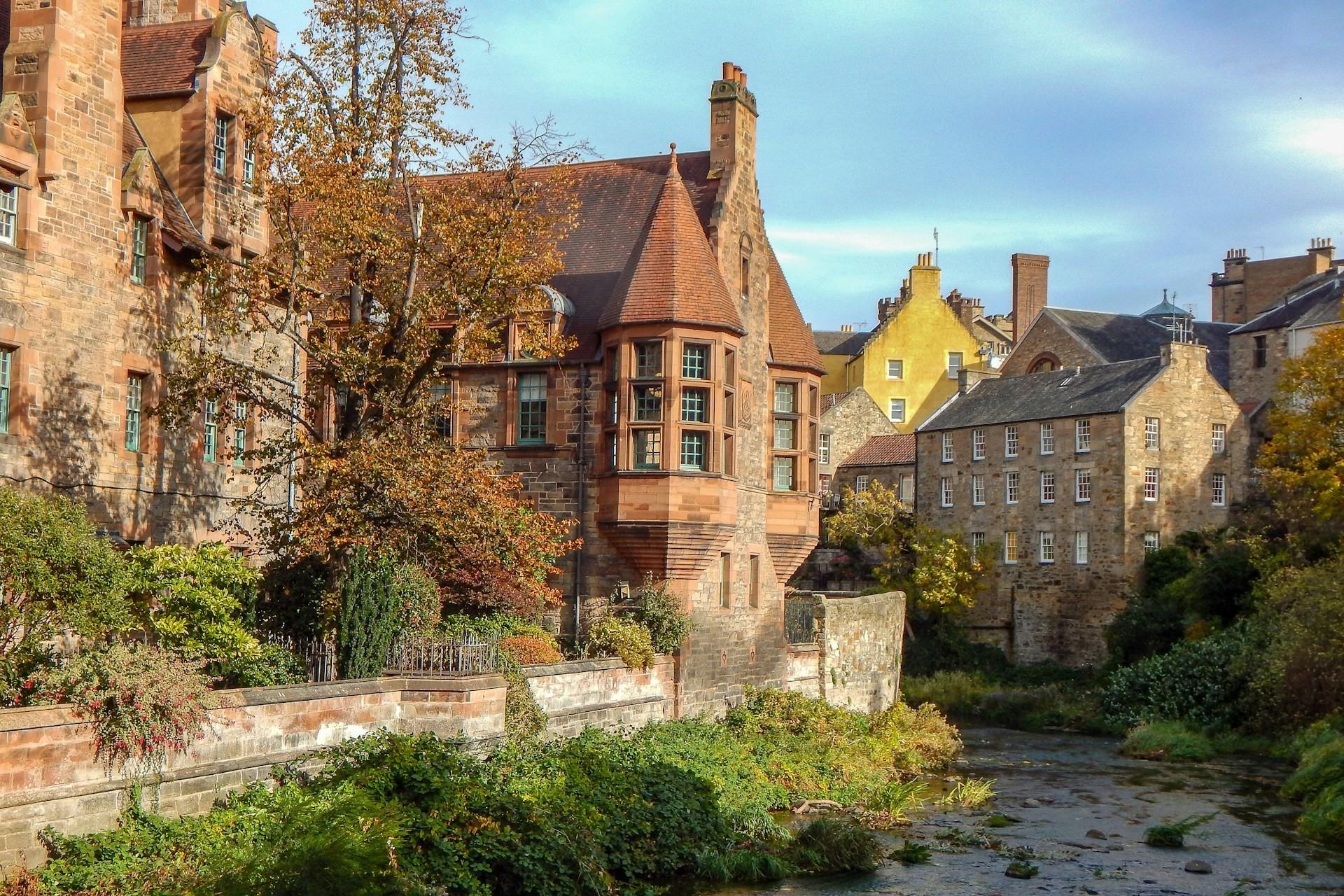Scotland, a land of diverse beauty, is also home to a rich tapestry of accents and dialects. The first encounter with a Scottish accent might surprise you, but remember, there isn't a single 'Scottish accent'. Instead, there's a fascinating array of accents and dialects, each with its own unique charm, depending on where you are and who you're speaking to.
Here's our guide to how the English language is spoken in Scotland.

Written Scottish English
Let's start with Scottish English in its most basic form, Scottish Standard English. This is the variant of the language most typically heard and used around Scotland.
Since Scottish English is written in the same way as other variants of English, you won't really notice Scottish Standard English until you hear it.

Scottish English and the Scots Language
Remember that Scots is a language related to English and belongs to the same linguistic branch. However, Scottish English includes the variants of the English language spoken and used in Scotland.
Scottish English, with its roots dating back to the 17th century, is a testament to Scotland's rich history. It is the result of the Scots language, a linguistic treasure in its own right, influencing how the English language was spoken in the country. This historical influence adds depth and character to the language we hear today.
After the Union between England and Scotland in 1707, Scotland changed significantly in the language spoken.
The changes to the semantics, phonology, punctuation, and grammar helped create the language spoken in Scotland today. However, remember that Scottish English isn't singular but a patchwork of different dialects and accents.
This is true of London accents, too, with many people believing that there's just the one accent.

Scottish English Across Scotland
We can break these dialects into four main groups: Insular, Northern, Southern, and Central. Remember that "insular" refers to "island" spoken on the Orkney and Shetland Islands.
Insular
Northern
Southern
Central
The names for the other dialects refer to the roughly where they're spoken in mainland Scotland and can be further subdivided. After all, the Insular Scottish dialects can include the subdialect spoken on the Shetland Islands, which differs from those spoken on the Orkney Islands.
Linguists like to classify things this way, so you'll find that for most dialects and accents, there are both subdivisions and broader groups that they belong to. The Welsh accents are also commonly confounded into one single accent despite there existing many variations and groups.

How Scots Influenced English
English is the third largest language in the world in terms of native speakers, but it's also the largest language in terms of total speakers.
The global influence of the language is undeniable, but linguistic influence goes both ways. The English language was greatly influenced by Latin and French (to the extent that half of its vocabulary originated from these two languages), as well as many different loanwords from other languages.
Typically Scottish Loanwords
Conversely, so many other languages around the world have English loanwords to the extent that many countries have language authorities that attempt to limit the influence English has on their native languages. France's Académie Française regularly battles against Anglicisms, often in humorous and out-of-touch ways, as they attempt to dictate how French speakers can use their own language, often with little to no success.
Remembering that “Scots” is a language and doesn't refer to the variants of English spoken in Scotland, the Scots language has influenced the English language.
There are words like “lass”, “lad”, “wee”, “twee”, “bonnie”, and “braw” that are all of Scottish origin. Similarly, the word “pinky” for your smallest finger is one that most English speakers wouldn't have even guessed originated with the Scottish.
Due to the geographical proximity and some shared history, the Geordie dialect found in Newcastle upon Tyne also has a lot of shared vocabulary with several Scottish dialects.

Scottish Grammatical Influences
Anyone who's ever studied English might notice the progressive verb forms commonly used, such as "We'll be seeing you tomorrow" instead of "We'll see you tomorrow."
Ironically and unlikely unintentionally, the American fast-food chain McDonald's (which is a Scottish name) has used "I'm lovin' it!" instead of the more grammatically standard "I love it!".
In most English language courses, students are taught that progressive forms aren't used in these instances, but remember that the English language isn't a monolith and that all variants, dialects, and accents are valid.
However, as anyone with a particularly strong or broad accent will know, you will have sometimes to make concessions to be understood by those who don't speak the same way or aren't familiar with your dialect and vocabulary.
General Rules for Spoken and Written Scottish English
We can't overstate how varied Scottish English is and how important it is that people don't see it as a singular accent spoken by everyone in the country.
While most Scottish dialects will share similar traits and many that differentiate them from the dialects and accents spoken in England to the south, there are variants geographically and in terms of how Scottish English is spoken and written.
Typically, Scottish English vocabulary is more acceptable in the spoken form of the language. After all, a language's written form is usually more standardised. Even students in Scottish schools and universities will be taught to write using the same conventions as those in England and Wales.
The written form used in Scottish English is usually the English (UK) variant rather than the American English or Australian English spellings and structures.
Spoken Scottish English allows for more typically Scottish words like 'laddie' and 'lassie' and the use of 'wee' to mean 'small '. However, the acceptability and value of these words in written English will always depend on the context or 'register' of the language required.
For instance, these words might be more acceptable in informal writing than in formal or academic contexts.
Most students are encouraged to avoid regional and "non-standard" vocabulary and grammatical forms in more formal writing situations, especially if they speak with any of the UK's broader accents like Scouse, for example.

Scottish Pronunciation
Keep in mind that there's a key linguistic difference between a “dialect” and an “accent”. A dialect is how language is used, including vocabulary, grammatical structure, and accent.
The accent, on the other hand, is how words are pronounced. For example, you can say "lassie", a word from Scottish dialects, but you'll only be saying it in a Scottish accent if you're Scottish.
The accent is how the consonants and vowels are pronounced. Here, we'll explain how pronunciation is typical across most Scottish accents. However, remember that unless you're a linguist, the examples themselves can only be approximated and will even depend on your accent.
Somebody with a Birmingham accent certainly wouldn't pronounce "lassie" the same as a Scottish person.
Here's a British Member of Parliament being unable to understand a Scottish accent.
Here's a fun interview with the Scottish actor Gerard Butler.
How Vowels are Pronounced in Scottish English
Vowels are typically the first place you'll notice somebody isn't speaking in the same accent as you. Vowel shifts are standard across most different accents. In Scottish English, some vowel combinations that some accents pronounce differently are merged into one.
For example, most Scottish English accents don't differentiate between the vowel sounds in the words "cot" and "caught." In many accents across England, these two words have unique vowel sounds. However, this merger has also occurred in many American English accents.
Similarly, many Scottish English accents merge the vowel sounds for words like "bath", "trap", and "palm", treating each of these words with the same vowel sound. This merger is common in some northern English accents like the Mancunian dialect, too.
How Consonants are Pronounced in Scottish English
Unlike many accents elsewhere in the UK, Scottish English is rhotic. This means that the "r" is always pronounced; when it is, it's also commonly trilled or rolled.
Many accents in England don't have this feature and are known as non-rhotic. The "r" in words like "car," "bear," and "fur" all change the pronunciation of the vowel.
Scottish Vocabulary
Since Scottish English is such a rich and varied dialect, we couldn't possibly list all the Scottish English words that aren't commonly used in other English dialects.
Instead, here we have some of the most common ones.
| Scottish Vocabulary | Meaning |
|---|---|
| Aye | Yes |
| Bairn | Child |
| Braw | Fine or good |
| Blether | Chat or gossip |
| Bonnie | Beautiful or pretty |
| Cannae | Cannot |
| Clype | Tell-tale or snitch |
| Crabbit | Grumpy or bad-tempered |
| Dinnae | Don't |
| Doon | Down |
| Dreich | Dreary, bleak, or gloomy |
| Fantoosh | Fancy or showy |
| Feart | Afraid or scared |
| Gallus | Bold or daring |
| Geggie | Mouth |
| Glaikit | Foolish or silly |
| Greet | Cry or weep |
| Haver | To talk nonsense |
| Ken | Know |
| Laddie / Lad | Boy or young man |
| Lassie / Lass | Girl or young woman |
| Messages | Groceries or errands |
| Mingin | Disgusting or dirty |
| Nae | No |
| Numpty | Foolish person |
| Outwith | Outside of or beyond |
| Peely-wally | Pale or sickly looking |
| Piece | Sandwich |
| Sassenach | A term for an English person (often used humorously) |
| Scunnered | Fed up or disgusted |
| Shoogly | Unsteady or shaky |
| Stoater | Something or someone impressive |
| Stramash | Uproar or commotion |
| Tattie | Potato |
| Tattie scone | A type of potato scone |
| Wheech | Move quickly or suddenly |
| Wheesht | Be quiet or hush |
| Wee | Small or little |
| Yon / Yonder | That or over there |
| Telt | Told |
Summarise with AI:
















My grandfather was a Scot and lived most of his life in Australia. But he never lost his brogue. He spent his life as a coal miner where most of his mates were Scots or sons of Scots. When he retired, he went to live with our family. I was a “wee lad” and he proceeded to “learn” me Scottish . I have never forgotten it and if I get with Scottish people here in Aus, I immediately begin to develop “the accent” which can be a bit embarrasing sometimes.. Went to Britain some years ago and my wife and I visited my mother’s cousin. Now, this cousin knew I could “speak Scottish” and insisted I did so. Very interesting but good fun. Loved the difference between the Aussie pron of Perth and Firth of Forth as opposed to the Scottish version. I have even taught a bit of Scots to my grandkids.
My wife was born in England but came out with parents under Ten Pound Pom scheme. She is fiercely Aussie and reckons she was was born when she came to Australia. She has completly picked up the Aussie Accent and completely lost the English one but, Interesting enough when we visited Britain, she began to pick up the old accent when visiting friends. Of course, she lost it when we came back to Aus.
Lang may your lum reek.
Tom.